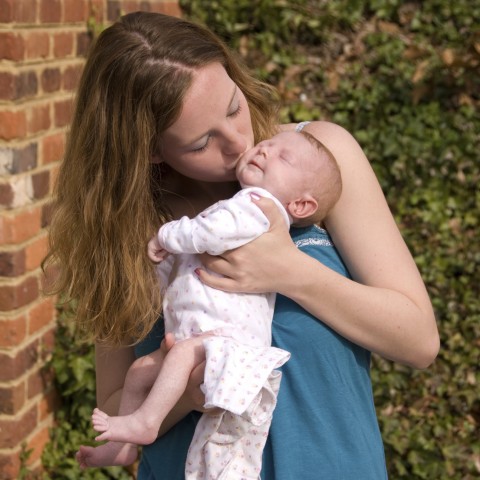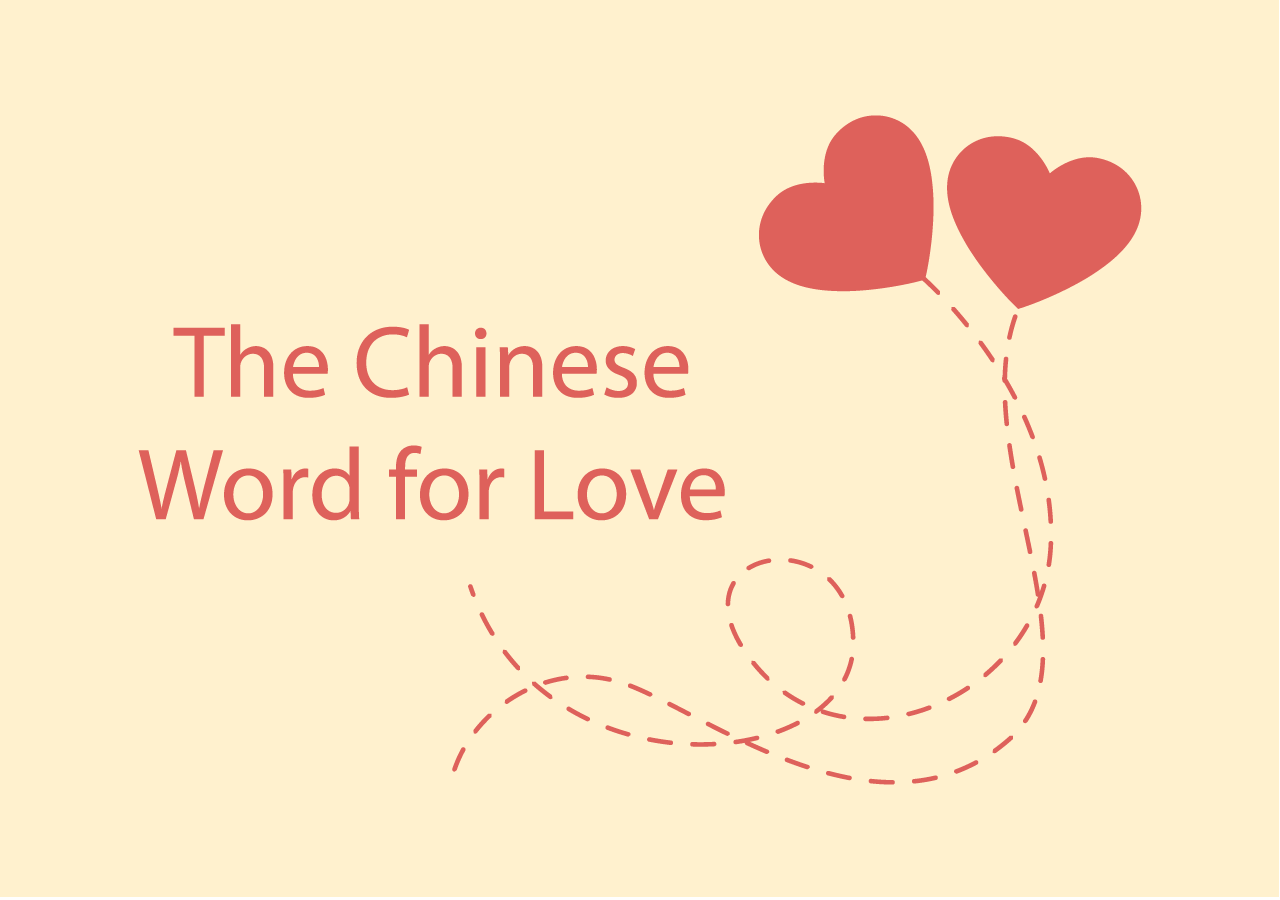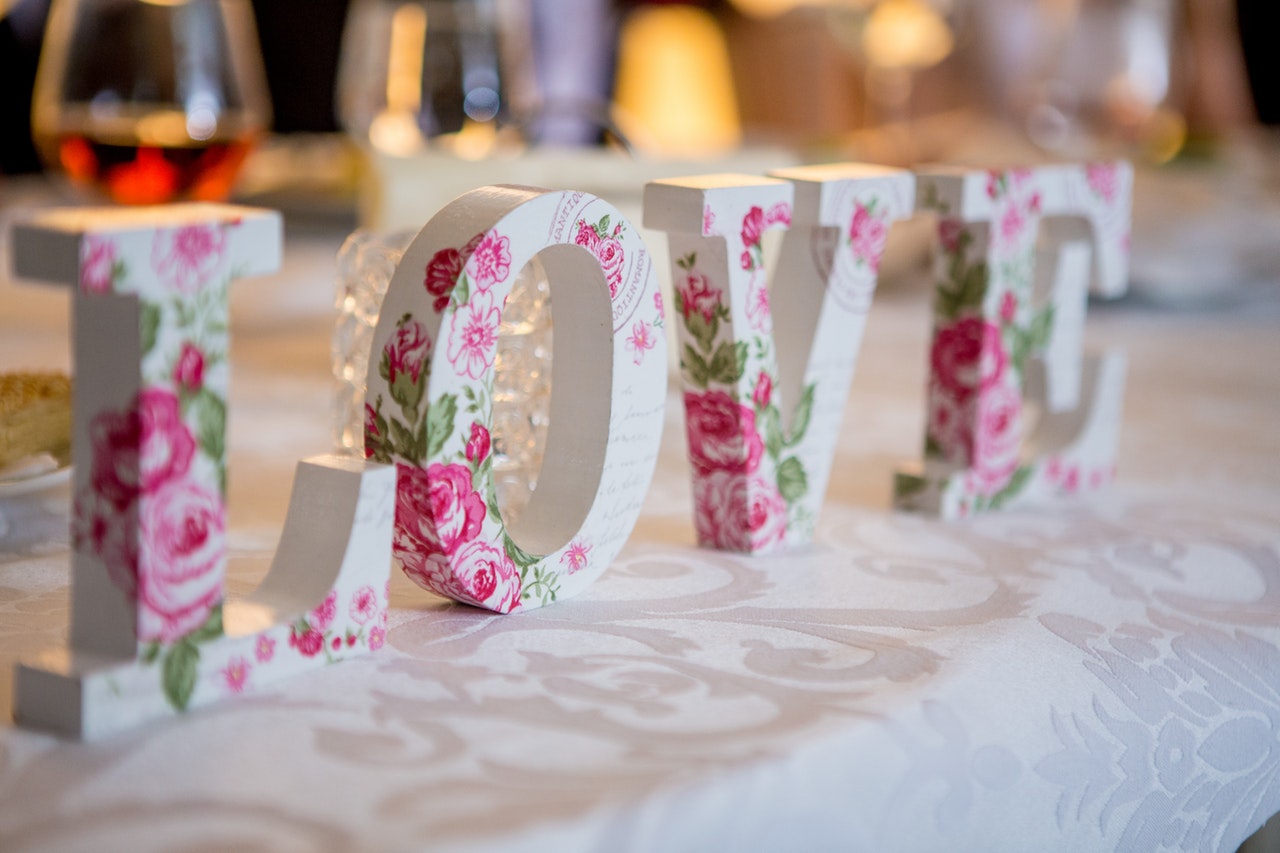Love: a beautiful topic that many people enjoy talking about. It seems to be a never-ending subject of discussion among philosophers, and indeed, it’s one of the most important purposes of human life. Most of us can’t live without it.
But having love is not enough. We also have to express it to those who truly deserve it.
“Love” in Chinese is 爱 (ài), and 爱 never comes easy. If you happen to fall for a Chinese girl or guy, the phrases and cultural information in this article will be your trump card.
Today, we’ll be delving into the topic of how to say “I love you,” in Chinese. We’ll introduce you to several romantic Mandarin phrases to use with your sweetheart at every stage of your relationship, from first contact to a second date and even proposing marriage! Near the end of this article, we’ll show you some sweet Chinese words for love and go over a few popular love quotes as well.
These are some of the sweetest love phrases in Chinese you’ll ever hear. They cannot wait to be mastered and said out loud to the person of your dreams!
Table of Contents
- Confess Your Affection: Pick-Up Lines and More
- Fall in Deeper: “I Love You,” and More
- Take it One Step Further: “Will You Marry Me?” and More
- Endearment Terms
- Must-Know Love Quotes
- Conclusion
1. Confess Your Affection: Pick-Up Lines and More
I know you’re rushing to learn how to say “I love you,” in Chinese, but let’s wait a second. Before you spit that out, make sure you don’t frighten the other person by being too forward right away. It’s probably better to take it slowly at this point.
In this section, we’ll first go over how to express your feelings before officially starting a relationship. This is usually done by asking the person out, showing your interest, or simply telling them your feelings, so we’ll give you useful phrases for these different scenarios. This is an important stage that will pave the way for your future relationship, so trust me, you don’t want to mess this up.
Maybe start pursuing your love by taking them on a date!
1.
In Chinese: 我可以约你出去吗?
Pinyin: Wǒ kě yǐ yuē nǐ chū qù ma?
In English: “Can I ask you out?”
2.
In Chinese: 我暗恋你很久了。
Pinyin: Wǒ àn liàn nǐ hěn jiǔ le.
In English: “I have been secretly in love with you for a long time.”
3.
In Chinese: 你有男朋友/女朋友了吗?
Pinyin: Nǐ yǒu nán péng yǒu / nǚ péng yǒu le ma?
In English: “Do you have a boyfriend / girlfriend?”
4.
In Chinese: 我想跟你在一起。
Pinyin: Wǒ xiǎng gēn nǐ zài yī qǐ.
In English: “I want to be with you.”
5.
In Chinese: 我们注定要在一起。
Pinyin: Wǒ men zhù dìng yào zài yī qǐ.
In English: “We are meant to be together.”
6.
In Chinese: 你就是对的那个人。
Pinyin: Nǐ jiù shì duì de nà gè rén.
In English: “You are the one.”
7.
In Chinese: 给我一个机会照顾你吧。
Pinyin: Gěi wǒ yī gè jī huì zhào gù nǐ ba.
In English: “Give me a chance to take care of you.”
8.
In Chinese: 我可以晚上请你吃个饭吗?
Pinyin: Wǒ kě yǐ wǎn shàng qǐng nǐ chī gè fàn ma?
In English: “Can I buy you dinner tonight?”
9.
In Chinese: 你就是我这辈子一直在等的那个人。
Pinyin: Nǐ jiù shì wǒ zhè bèi zi yī zhí zài děng de nà gè rén.
In English: “You are the person I have been waiting for my whole life.”
2. Fall in Deeper: “I Love You,” and More
Now that you’re together, it’s time to tell the person what he/she wants to hear.
Congratulations! If you find yourself needing to use these sweet Chinese love phrases, you must have successfully captured someone’s heart. Now it’s time to simply express your love each and every day to keep your relationship going smoothly.
10.
In Chinese: 我爱你。
Pinyin: Wǒ ài nǐ.
In English: “I love you.”
11.
In Chinese: 我喜欢你。
Pinyin: Wǒ xǐ huān nǐ.
In English: “I like you.”
12.
In Chinese: 我很想你。
Pinyin: Wǒ hěn xiǎng nǐ.
In English: “I miss you very much.”
13.
In Chinese: 情人节快乐。
Pinyin: Qíng rén jié kuài lè.
In English: “Happy Valentine’s Day.”
14.
In Chinese: 我就是喜欢这样的你
Pinyin: Wǒ jiù shì xǐ huān zhè yàng de nǐ.
In English: “I just like the way you are.”
15.
In Chinese: 我脑海里都是你。
Pinyin: Wǒ nǎo hǎi lǐ dōu shì nǐ.
In English: “I can’t stop thinking about you.”
16.
In Chinese: 没有你我活不下去。
Pinyin: Méi yǒu nǐ wǒ huó bú xià qù.
In English: “I can’t live without you.”
3. Take it One Step Further: “Will You Marry Me?” and More
Are you ready to grow your relationship into a family?
Wow! If you’re reading this, then you’re about to take a huge step in your relationship. Here are some useful phrases to help you get ready for this new chapter of your life together.
17.
In Chinese: 我们结婚吧。
Pinyin: Wǒ men jié hūn ba.
In English: “Let’s get married.”
18.
In Chinese: 我想和你同居。
Pinyin: Wǒ xiǎng hé nǐ tóng jū.
In English: “I’d like to move in with you.”
19.
In Chinese: 余生请多指教。
Pinyin: Yú shēng qǐng duō zhǐ jiào.
In English: “Let’s grow and learn together for the rest of our lives.”
20.
In Chinese: 你愿意嫁给我吗? / 你愿意娶我吗?
Pinyin: Nǐ yuàn yì jià gěi wǒ ma? / Nǐ yuàn yì qǔ wǒ ma?
In English: “Do you want to marry me?”
Additional notes: In Chinese, the word for “marry” is different depending on the gender. When it’s the male asking the female, 嫁 (jià) is used; 娶(qǔ) is the correct word to use if the female is asking the male.
21.
In Chinese: 我们是时候要孩子了。
Pinyin: Wǒ men shì shí hòu yào hái zi le.
In English: “It’s time for us to have a baby.”
22.
In Chinese: 你想见见我父母吗?
Pinyin: Nǐ xiǎng jiàn jiàn wǒ fù mǔ ma?
In English: “Do you want to meet my parents?”
Additional notes: In a Chinese relationship, it’s a big deal to see each other’s parents.
4. Endearment Terms
You know a cute nickname is essential for any relationship!
Maybe it’s time to use a fun endearment term for your partner! Here are some cute nicknames you should consider:
23.
In Chinese: 亲爱的
Pinyin: qīn ài de
In English: “Darling”
24.
In Chinese: 老公 / 老婆
Pinyin: lǎo gōng / lǎo pó
In English: “Husband” / “Wifey”
25.
In Chinese: 宝贝 / 宝宝
Pinyin: bǎo bèi / bǎo bao
In English: “Baby” / “Babe”
26.
In Chinese: 小傻瓜 / 笨蛋
Pinyin: xiǎo shǎ guā / bèn dàn
In English: “Little Fool”
27.
In Chinese: 夫君 / 夫人
Pinyin: fū jūn / fū rén
In English: “Husband” / “Wife”
Additional notes: This is the ancient way of saying “husband” and “wife.” Today, these terms are used as fun expressions of endearment between married couples.
5. Must-Know Love Quotes
Say something sweet everyday to make the person with you feel that she/he is well-loved!
Now that you’ve settled down with your other half, it’s time to start showing your love in more depth! Even a stable relationship needs to be consistently nurtured, and hopefully these quotes and love phrases in Chinese can help you with that.
28.
In Chinese: 你让我想成为更好的人。
Pinyin: Nǐ ràng wǒ xiǎng chéng wéi gèng hǎo de rén.
In English: “I want to be a better person for you.”
29.
In Chinese: 愿得一人心,白首不相离。
Pinyin: Yuàn dé yī rén xīn, bái shǒu bù xiàng lí.
In English: “To have one’s heart and never be apart even when the hair turns silver.”
30.
In Chinese: 和你在一起的每一天都是情人节。
Pinyin: Hé nǐ zài yī qǐ de měi yī tiān dōu shì qíng rén jié.
In English: “Being with you, I think every day is Valentine’s Day.”
31.
In Chinese: 在我眼里你是最美的。
Pinyin: Zài wǒ yǎn lǐ nǐ shì zuì měi de.
In English: “You are the most beautiful person to my eyes.”
32.
In Chinese: 爱你,是我做过的最好的事。
Pinyin: Ài nǐ, shì wǒ zuò guò de zuì hǎo de shì.
In English: “Loving you is the best thing I’ve done.”
33.
In Chinese: 你就是我的全世界。
Pinyin: Nǐ jiù shì wǒ de quán shì jiè.
In English: “You are my whole world.”
34.
In Chinese: 你只属于我。
Pinyin: Nǐ zhǐ shǔ yú wǒ.
In English: “You only belong to me.”
35.
In Chinese: 我的心里只有你。
Pinyin: Wǒ de xīn lǐ zhǐ yǒu nǐ.
In English: “You are the only one in my heart.”
36.
In Chinese: 我们一起变老吧。
Pinyin: Wǒ men yī qǐ biàn lǎo ba.
In English: “Let’s grow old together.”
37.
In Chinese: 执子之手,与子偕老
Pinyin: Zhí zǐ zhī shǒu, yǔ zǐ xié lǎo.
In English: “I promise to hold your hands and grow old with you.
6. Conclusion
So, what’s your favorite way to say “I love you” in Chinese? Now that you’ve mastered some basic Chinese love phrases, you might consider writing a love letter or something more.
As you may already know, it’s never easy to pursue love, and it can get even more difficult when you’re doing it in another language or with a foreigner who doesn’t speak your native language. But don’t worry yet—ChineseClass101 is here to give you a hand!
ChineseClass101 will guide you to fluency with numerous lessons about the Chinese culture, grammar, vocabulary, and so much more. All of this is customized for different levels and different learning preferences. Create your free lifetime account today in order to gain access to these world-class teaching materials.
Now, get out there and win over that good-looking Chinese guy or gal!

Chinese Dating Culture
Although this is slowly beginning to change, there is a huge emphasis on women marrying early in Chinese culture. According to Chinese traditions, if you’re a woman of 28 and you’re still not married, you might as well give up and accept the title of 剩女 (shèng nǚ). While men have a few extra years to settle down, once you hit your late twenties and you’re still single, mom might have a friend whose daughter is 很漂亮 (hěn piào liang). Since there’s lots of pressure to get married from parents and family members, dating is an important part of Chinese culture.
For many young Chinese people, the ‘M’ word is already on their minds when going on a date. ‘Compatibility’ is a big issue when choosing a partner, and it can be said that even in the modern-day, marriage can often be a pragmatic decision rather than one based on love or romance. For many Chinese women, a man needs to have good prospects and be able to buy an apartment and a car.
Here are some useful vocabulary words for going on a date, telling someone you like them, and maybe fancying a little bit more…
Language of Love
来电 (lái diàn) Chemistry
打情骂俏 (dǎ qíng mà qiào) to flirt
暗恋 (àn liàn) To have a crush on

明恋 (míng liàn) to love
痴迷 (chī mí) Infatuated/obsessed
痴情 (chī qíng) infatuated
表白 (biǎo bái) / 告白 (gào bái) to express feelings
确定关系 (què dìng) to confirm a relationship
专一 (zhuān yī) one-track mind (focused on one thing)
暧昧 (ài mèi) and 暧昧关系 (ài mèi guān xì) were previously used in the negative sense, of having an affair or shady relationship, however, it is not more commonly used to describe a relationship that hasn’t begun yet and the couple has yet to confirm their relationship ‘status’.
爱人 (ài ren) / 情人 (qíng rén) Lover
宝贝 (bǎo bèi) / 北鼻 (běi bí) Baby
宝宝 (bǎo bǎo) Darling
亲爱的 (qīn ài de) Darling/dear/honey
小甜甜 (xiǎo tián tián) Sweetie/sweetheart
老公 (lǎo gōng) Husband (Woman call their boyfriend or husband)
老婆 (lǎo pó) / 媳妇 (xí fù) Wife (Man call their girlfriend or wife)
女朋友 (nǚ péng you) Girlfriend
男朋友 (nán péng you) Boyfriend

太太 (tài tai) / 妻子 (qī zi) / 老婆 (lǎo pó) Wife
先生 (xiān sheng) / 丈夫 (zhàng fu) / 老公 (lǎo gong) Husband
美女 (měi nǚ) Beautiful girl
帅哥 (shuài ge) Handsome guy
Flirting in Chinese
我喜欢你。(wǒ xǐ huan nǐ) I like you.
我想你。(wǒ xiǎng nǐ) I miss you.
我爱你。 (wǒ ài nǐ) I love you.
我好想你。(wǒ hǎo xiǎng nǐ) I miss you so much.
你最好了。(nǐ zuì hǎo le) You are the best.
我为你疯狂。(wǒ wèi nǐ fēng kuáng) I’m crazy about you!
Learn more romantic phrases with ChinesePod’s video lessons.

你看起来真棒!(nǐ kàn qǐ lái zhēn bàng) You look amazing!
我想更了解你。(wǒ xiǎng gèng liǎo jiě nǐ) I want to get to know you better.
我很高兴。(wǒ hěn gāo xìng) I’m so happy!
你很可爱。(nǐ hěn kě ài) You’re very cute.
你很漂亮。(nǐ hěn piào liang) You’re very pretty.
你很美。(nǐ hěn měi) You’re very beautiful.
很迷人。(hěn mí rén) Very charming
你很性感!(nǐ hěn xìng gǎn) You’re so sexy!
你的身材很美。(nǐ de shēn cái hěn měi) You have a beautiful body!
你的眼睛很美。(nǐ de yǎn jing hěn měi) Your eyes are beautiful!
我喜欢你的...(wǒ xǐ huan nǐ de) I like your…
眼睛 (yǎn jing) eyes
头发 (tóu fa) hair
声音 (shēng yīn) voice
你很甜。(nǐ hěn tián) You’re very sweet
你变发型了。(nǐ biàn fà xíng le) You changed your hair.
Chinese Dating Words
我想和你约会。(wǒ xiǎng hé nǐ yuē huì) I‘d like to take you out (on a date).
我买单!(wǒ mǎi dān) Let me pay!
我们AA制吧!(wǒ men AA zhì ba) Let’s go dutch! (split the bill)
你想跳舞吗?(nǐ xiǎng tiào wǔ ma) Would you like to dance?
陪我好吗?(péi wǒ hǎo ma) Would you accompany me?
我送你回家。(wǒ sòng nǐ huí jiā) I’ll see you home.
我今天晚上过得很开心。(wǒ jīn tiān wǎn shang guò de hěn kāi xīn) I had a really nice night.
Proposing in Chinese
我是你的。(wǒ shì nǐ de) I’m yours.

你是我的。(nǐ shì wǒ de) You’re mine.
我不想离开你。(wǒ bù xiǎng lí kāi nǐ) I don’t want to leave you!
我不能没有你。(wǒ bù néng méi yǒu nǐ) I can’t live without you.
我们结婚吧!(wǒ men jié hūn ba) Let’s get married!

我想嫁给你!(wǒ xiǎng jià gěi nǐ) I want to marry you! (for women only)
我想娶你!(wǒ xiǎng qǔ nǐ) I want to marry you! (for men only)
我愿意!(wǒ yuàn yì) I do.
一见钟情 (yī jiàn zhōngqíng) fall in love at first sight
日久生情 (rì jiǔ shēng qíng) Love will come in time.
执子之手,与子偕老。(zhí zǐ zhī shǒu, yǔ zǐ xié lǎo) To stay together till death.
未婚夫 (wèi hūn fū) fiancé
未婚妻 (wèi hūn qī) fiancée
You can learn more about Chinese weddings in our article The 6 Etiquettes of a Traditional Chinese Wedding Ceremony.
Sexy Time
我要你。(wǒ yào nǐ) I want you.
闭上眼睛。(bì shang yǎn jing) Close your eyes.
张开眼睛。(zhāng kāi yǎn jing) Open your eyes.
吻我。(wěn wǒ) Kiss me.
抱我。(bào wǒ) Hug me.

留下来。(liú xià lái) Stay here.
靠近我。(kào jìn wǒ) Come closer.
我想做爱。(wǒ xiǎng zuò ài) I want to make love.
好极了。(hǎo jí le) Great!
我有点紧张。(wǒ yǒu diǎn jǐn zhāng) I’m a bit nervous.
不要紧张。(bù yào jǐn zhāng) Don’t be nervous.
咬我! (yǎo wǒ) Bite me!
舔我! (tiǎn wǒ) Lick me!
轻一点。(qīng yī diǎn) Softer
温柔一点。(wēn róu yī diǎn) More tender.
使劲一点。(shǐ jìn yī diǎn) Stronger
正常体位。(zhèng cháng tǐ wèi) Missionary
女上位。 Girl on top (nǚ shàng wèi)
后入。(hòu rù) Doggie style
感觉太棒了。(gǎn jué tài bàng le) I feel so good!
你做的很好。 (nǐ zuò de hěn hǎo) You did that so well!
再来一次。 (zài lái yī cì) One more time.
If you want to up your spoken Chinese game, I really suggest taking a look at our friends over at MandarinHQ. They have a tool called the Real Spoken Chinese Vault, and it basically introduces you to lots of different ways to say essential Chinese phrases. The recordings come from real Chinese people that come from all over China, so you’ll also experience different dialects too. We have a special offer that’s exclusive to Written Chinese readers too (heads up, if you do purchase the Real Spoken Chinese Vault, we do get commission, but it’s at no extra cost to you)!
See how the Real Spoken Chinese Vault works, or check out our review.
By the way, it’s lifetime access to the vault and updates once you’re in!
Want to Study This Later?
Get your free PDF of Romantic Mandarin Phrases delivered to your inbox.
Contents
- 1 The Chinese Word for Love
- 1.1 Ok, that’s it for the Chinese word for love.
- 1.1.1 All students can practice writing with a live 1-on-1 tutor with TutorMandarin.
- 1.1.2 Sign up now for a free class!
- 1.1 Ok, that’s it for the Chinese word for love.
When learning a language, one of the first things you should learn is to say “I love you!” In fact, many people learn the word for “love” in tons of different languages, just in case! So, let’s learn not just the Chinese word for love, but at least 5 ways to say “I love you” in the Chinese language! That way, you can express your love in several different ways!
If you are learning Chinese, don’t forget to sign up for free and get a 50-minute trial class with our professional tutor to learn Chinese with a real person. Plus, you can download our Chinese app or read other read our other blog articles about Chinese.
1. 我爱妳 (wǒ ài nǎi)
我爱妳 (wǒ ài nǎi) is the most common way to say I love you in Chinese. In traditional Chinese, 愛 could be translated into three parts. The upper part, 爫 represents the hand. The middle part, 冖 is like a cap, a cover upon the heart 心. The last part 夊 refers to feet. In combination, it means putting one’s heart inside a box or wrapped in a beautiful scarf and carried it with care and love. Isn’t that lovely? One of the nicest things about learning Chinese is seeing how the characters and meanings have evolved over times like this!
Example Sentence:
我爱你
I love you
我很爱看电影,所以周末常跟朋友或家人去电影院看电影。
Wǒ hěn ài kàn diànyǐng, suǒyǐ zhōumò cháng gēn péngyou huò jiārén qù diànyǐngyuàn kàn diànyǐng.
I love watching movies, so I often watch movies in the theatre with friends and family.
2. 我喜欢你 (wǒ xǐhuan nǐ)
我喜欢你 (wǒ xǐhuan nǐ) literally means “I like you.” It’s not as strong as the Chinese words for love, but it’s a similar meaning and much more commonly used. Definitely a good phrase to know in Chinese! We included it in this list, becuase to some people, it’s a shy way to say I love you! So for some people, this might be the perfect phrase to use.
Example Sentence:
我喜欢你
Wǒ xǐhuān nǐ
I like you.
夏天的时候我喜欢去海边。
Xiàtiān de shíhou wǒ xǐhuan qù hǎibiān.
I like to go to the beach in summer.
3. 一见钟情 (yījiàn zhōngqíng)
Here’s a phrase that works in every language – “Love at first sight!” In fact the Chinese is 一见钟情 (yījiàn zhōngqíng) which breaks down like this. 一 / yī means first. 见 / jiàn means to see. 钟情 /zhōngqíng means love. So, if you’re romantically in love with someone from the moment you meet, then this word is perfect for you! Be careful though, it’s a powerful phrase!
Jiāowǎng nàme jiǔle, dāngchū wǒ duì nǎi yījiànzhōngqíng, xiànzài nǎi yuànyì jià gěi wǒ ma?
交往那么久了,当初我对妳一见钟情,现在妳愿意嫁给我吗?
I fall in love with you at first sight. Now we’ve been together for so long, would you marry me?
4. 啾咪 (jiū mī)
啾咪 (jiū mī) is a Chinese slang which refers to a blow kiss. It’s also a way to act cute when you need a favor or to show your gratitude.
Nǐ huílái de shíhou kěyǐ shùnbiàn bāng wǒ mǎi wǔcān ma?
你回来的时候可以顺便帮我买午餐吗?
Could you get lunch for me on your way back?
Jiū mī ō ài nǐ la!
啾咪喔 爱你啦!
Thanks! I love you!
Ok, that’s it for the Chinese word for love.
Sign up our free trial to learn Mandarin and download the Chinese App for more Chinese language materials and to learn Mandarin online!
All students can practice writing with a live 1-on-1 tutor with TutorMandarin.
Sign up now for a free class!
Are you interested in someone and you want to express how you feel about that person? Or are you very much in love and you want to share the world of your love for that person? Are you looking for words and phrases to express these romantic feelings in Chinese? Then you’ve come to the right article!
In this article, you will learn Chinese love phrases and vocabulary that will be perfect for expressing your romantic feelings for someone.
50 Chinese Love Vocabulary
Here are 50 romantic Chinese words that you can use.
| Hanzi | Pinyin | English |
|---|---|---|
| 感情 | gǎnqíng | affection |
| 欣赏 | xīnshǎng | appreciate |
| 美女 | měinǚ | beautiful girl |
| 男朋友 | nánpéngyou | boyfriend |
| 关怀 | guānhuái | caring |
| 珍爱 | zhēn’ài | cherish |
| 七夕节 | qīxì jié | Chinese Valentine’s Day |
| 巧克力 | qiǎokèlì | chocolate |
| 妥协 | tuǒxié | compromise |
| 丘比特 | qiūbǐtè | cupid |
| 可爱 | kě’ài | cute |
| 宝宝 | bǎobǎo | darling |
| 约会 | yuēhuì | date |
| 亲爱的 | qīn’ài de | dear/honey |
| 永远 | yǒngyuǎn | forever |
| 友谊 | yǒuyì | friendship |
| 好玩 | hǎowán | fun |
| 礼物 | lǐwù | gift |
| 女朋友 | nǚpéngyou | girlfriend |
| 帅哥 | shuàigē | handsome guy |
| 幸福 | xìngfú | happiness |
| 快乐 | kuàilè | happy |
| 心 | xīn | heart |
| 拥抱 | yōngbào | hugs |
| 丈夫 | zhàngfu | husband |
| 老公 | lǎogong | husband (playful term) |
| 痴情 | chīqíng | infatuated |
| 痴迷 | chīmí | infatuated / obsessed |
| 喜乐 | xǐlè | joy |
| 吻 | wěn | kiss |
| 爱 | ài | love |
| 忠诚 | zhōngchéng | loyal |
| 婚姻 | hūnyīn | marriage |
| 热情 | rèqíng | passion |
| 浪漫 | làngmàn | romantic |
| 玫瑰 | méiguī | rose |
| 无私 | wúsī | selfless |
| 惊喜 | jīngxǐ | surprise |
| 甘 | gān | sweet |
| 小甜甜 | xiǎotiántián | sweetheart |
| 泰迪熊 | tàidíxióng | teddy bear |
| 感谢 | gǎnxiè | to be grateful |
| 表白/告白 | biǎobái/gàobái | to express feelings |
| 喜欢 | xǐhuan | to like |
| 明恋 | míngliàn | to love |
| 信任 | xìnrèn | trust |
| 了解 | liǎojiě | understand |
| 温暖 | wēnnuǎn | warm |
| 妻子 | qīzi | wife |
| 老婆/媳妇 | lǎopó/xífù | wife/girlfriend (playful term) |
40 Romantic Chinese Phrases
Now that you’ve learned a few romantic words, here are 40 romantic Chinese phrases that we can use to express how we feel.
| Hanzi | Pinyin | English |
|---|---|---|
| 情人节快乐! | qíngrén jié kuàilè! | Happy valentine’s day! |
| 我为你疯狂 | wǒ wèi nǐ fēngkuáng | I am crazy for you |
| 我很高兴 | wǒ hěn gāoxìng | I am very happy |
| 我不能没有你 | wǒ bùnéng méiyǒu nǐ | I cannot live without you |
| 我不想离开你 | wǒ bùxiǎng líkāi nǐ | I do not want to leave you |
| 我喜欢你的一切 | wǒ xǐhuān nǐ de yīqiè | I like everything about you |
| 我喜欢你 | wǒ xǐhuān nǐ | I like you |
| 我爱你 | wǒ ài nǐ | I love you |
| 我疯狂的爱着你 | wǒ fēngkuáng de àizhe nǐ | I love you crazy |
| 我爱你那么多 | wǒ ài nǐ nàme duō | I love you so much |
| 我想你 | wǒ xiǎng nǐ | I miss you |
| 我好想你 | wǒ hǎo xiǎng nǐ | I miss you so much |
| 我只在乎你 | wǒ zhǐ zàihū nǐ | I only care about you |
| 我热烈的爱着你 | wǒ rèliè de àizhe nǐ | I passionately love you |
| 我想和你约会 | wǒ xiǎng hé nǐ yuēhuì | I want to date with you |
| 我想更了解你 | wǒ xiǎng gèng liǎojiě nǐ | I want to know more about you |
| 我想让你幸福 | wǒ xiǎng ràng nǐ xìngfú | I want to make you happy |
| 我是你的 | wǒ shì nǐ de | I’m yours |
| 一见钟情* | yījiànzhōngqíng | Love at first sight |
| 日久生情* | rì jiǔshēng qíng | Love will come at the right time |
| 永远爱你 | yǒngyuǎn ài nǐ | Love you forever |
| 谢谢你的礼物 | xièxiè nǐ de lǐwù | Thank you for the gift |
| 谢谢你请我吃饭 | xièxiè nǐ qǐng wǒ chīfàn | Thank you for treating me out for dinner |
| 这些玫瑰很漂亮 | zhèxiē méiguī hěn piàoliang | These roses are beautiful |
| 你喜欢我什么 | nǐ xǐhuān wǒ shénme | What do you like about me |
| 你愿意做我的情人吗? | nǐ yuànyì zuò wǒ de qíngrén ma? | Will you be my lover? |
| 你想跳舞吗 | nǐ xiǎng tiàowǔ ma | Would you like to dance |
| 你是我的 | nǐ shì wǒ de | You are mine |
| 你是我最喜欢的人 | nǐ shì wǒ zuì xǐhuān de rén | You are my favorite person |
| 你很美 | nǐ hěn měi | You are pretty |
| 你最好了 | nǐ zuì hǎole | You are the best |
| 你是最美丽的女孩 | nǐ shì zuì měilì de nǚhái | You are the most beautiful girl |
| 你是最帅哥 | nǐ shì zuì shuàigē | You are the most handsome guy |
| 很迷人 | hěn mírén | You are very charming |
| 你很可爱 | nǐ hěn kě’ài | You are very cute |
| 你看起来真棒 | nǐ kàn qǐlái zhēn bàng | You look awesome |
| 你看起来很帅 | nǐ kàn qǐlái hěn shuài | You look very handsome |
| 你让我快乐 | nǐ ràng wǒ kuàilè | You make me happy |
| 你的眼睛很美 | nǐ de yǎnjīng hěn měi | Your eyes are beautiful |
| 你很漂亮 | nǐ hěn piàoliang | You’re very beautiful |
* Chéngyǔ
Extra Learning Tip
If you are still finding the courage to express your feelings in person, you can try expressing how you feel through leaving short notes on his/her table. Writing a Chéngyǔ is a good idea!
成语 (Chéngyǔ) are four-character Chinese idioms or set phrases. Reading Chéngyǔ is very helpful in understanding Chinese characters. Since there are only 4 characters, memorizing and applying the Chéngyǔ will be easy.
Chéngyǔ are very helpful in understanding the characters since these phrases cannot be translated literally online, rather you must understand the concept and meaning of each character to get the full meaning of the Chéngyǔ.
| 一见钟情 |
| yījiànzhōngqíng |
| Love at first sight |
一 : one/first
见 : to see
钟 : time (in hours and minutes)
情 : to feel affection
The concept of this Chéngyǔ is the first time someone set his/her eyes on someone, there was already love.
| 日久生情 |
| rì jiǔshēng qíng |
| Love will come at the right time |
日 : day
久 : specific time
生 : life/to be born
情 : to feel affection
The concept of this Chéngyǔ is one day, at a specific time, love will be born.
Interesting right? This will surely make learning Chinese even more interesting! Enjoy!
Alyza is a fluent Chinese speaker who works as a corporate analyst in the Philippines. She also loves gaming and fitness on her downtime.
related posts:
Chinese culture is remarkably different from the Western world — the food you taste there is nothing like an American Chinese bistro, the movies and shows might take a bit longer to get used to and the rules of the culture are different, too.
It’s no surprise that expressing love, dating and asking a Chinese person to marry you are nothing like what an American person is familiar with.
Chinese teenagers usually don’t date in school, they don’t date without the purpose of marrying, and parents are almost always involved in their children’s relationships. The signs of love and affection between family members and friends are most of the times different from the ones the Western world knows, too.
The Chinese Word for Love
Before getting any deeper into expressing love, let’s have a look at the Chinese character/word for love:
爱/愛 (ài) — means love, but it can be translated as “like”, as well. Most likely, if you use 爱, you truly do love them.
Let’s have a look at other words and phrases Chinese express their love:
I. Show Your Friend Some Love
1) I like you
Simplified Chinese: 我喜欢你 (wǒ xǐhuān nǐ)
Traditional Chinese: 我喜歡你 (wǒ xǐhuān nǐ)
This is the most common way of telling someone you like them. It can mean you like them as a friend, but it can also mean you’re starting to have feelings for someone you’re dating and would like to spend more time with them.
喜欢 / 喜歡 is commonly used to express you like sports, books or a certain dish. So, as in English, it’s not as strong as “love”.
2) You’re my best friend!
Simplified Chinese: 你是我最好的朋友!(nǐ shì wǒ zuì hǎo de péngyǒu!)
Traditional Chinese: 你是我最好的朋友!(nǐ shì wǒ zuì hǎo de péngyǒu!)
How sweet is it to tell someone they’re your bestie?
Even though Chinese people are generally not too affectionate and you’ll rarely see kisses and hugs in public, they’re not afraid to express love for their friends. If you really become friends with a Chinese person, they will often give you presents, joke around and make fun of you (all out of love) and you might even attend their family gatherings.
叔叔 (shūshu), 阿姨 (āyí) — Calling someone 叔叔 (literally “uncle”) or 阿姨 (literally “aunt”) among your friends means you are really good friends. At the end of the day, you are a part of the family now, aren’t you?
Notice how 叔叔 is officially marked as 1st tone followed by neutral tone. When referring to someone in an endearing way, your tones should change to reflect this special relationship to 3rd tone followed by 2nd tone (also considered a kind of neutral tone): shǔshú. This same tone pattern is also used with other family members such as bǎbá, etc. This is only used in a «vocative» sense only when speaking to the person directly or with family members who share the same relation, and not when speaking about the person to somebody outside your family. For example:
Talking to your friend: wǒ bà shuō 我爸說…
Talking to your sibling: bǎbá shuō 爸爸說…
II. Tell them you like them
1) You’re beautiful.
Simplified Chinese: 你真漂亮! (nǐ zhēn piàoliàng!)
Traditional Chinese: 你真漂亮! (nǐ zhēn piàoliàng!)
The Chinese word for pretty and the word for beautiful are, similarly to English, used a bit differently.
While 漂亮 (piào liàng) — pretty, can be used to tell your mom, female friend or sister they look nice, 美丽 / 美麗 (měi lì) is stronger; it means beautiful.
漂亮 is also more common in a conversation, while 美丽 / 美麗 is more likely to be found in written text or even in a more formal conversation.
So how do you tell her “You are pretty?”
Simplified Chinese: 你好漂亮! (nǐ hǎo piàoliàng!)
Traditional Chinese: 你好漂亮! (nǐ hǎo piàoliàng!)
In a sentence, 好 is usually used as “very” or “so” to add emphasis.
2) I love spending time with you.
Simplified Chinese: 我喜欢和你在一起 (wǒ xǐhuān hé nǐ zài yìqǐ)
Traditional Chinese: 我喜歡跟你在一起 (wǒ xǐhuān gēn nǐ zài yìqǐ)
As you’re getting closer to them, you might want to tell them how much you appreciate the time with them. It’s easy to let your partner know how much you enjoy spending time with them without getting into the words of love yet.
It literally means “I like with you together”. A simple way to say you like to spend time with them/be with them (I like to spend time with you).
3) “I love to spend all the time with you.”
Simplified Chinese: 我喜欢跟你在一起每一秒、每一刻
(wǒ xǐhuān gēn nǐ zài yìqǐ měi yì miǎo, měi yí kè)
Traditional Chinese: 我喜歡跟你在一起每一秒、每一刻
(wǒ xǐhuān gēn nǐ zài yìqǐ měi yì miǎo, měi yí kè)
Do you want to be a bit more intense? More romantic? This phrase hints love; it literally means “I love with you all the time” and would be used to say “I love to spend all the time with you”. Compared to the previous phrase, you might really want to use this one, when you want to let them know, you’re ready to give them all your free time, because that’s how much you like them.
III. Chinese Flirting Lines
Chinese pick up lines don’t really exist. If you want to flirt with a pretty Chinese woman or a man, you might have a bigger chance with them having a normal conversation than try using a pick up line or flirt too obviously.
1) “You are very cute.”
Simplified Chinese: 你非常可爱 (nǐ fēicháng kěài)
Traditional Chinese: 你非常可愛 (nǐ fēicháng kěài)
This is something you can say if you don’t want to be too straight-forward just yet.
2) “The weather today is really nice.”
Simplified Chinese: 今天天气非常好 (jīntiān tiānqì fēicháng hǎo)
Traditional Chinese: 今天天氣非常好 (jīntiān tiānqì fēicháng hǎo)
Yes, even talking about weather can break the ice. Again, don’t be too straight-forward and try to have a simple conversation first, instead.
3) “Can I buy you a drink?”
Simplified Chinese: 我能请你喝一杯吗? (wǒ néng qǐng nǐ hē yī bēi ma?)
Traditional Chinese: 我能請你喝一杯嗎?(wǒ néng qǐng nǐ hē yī bēi ma?)
Literally: Can I invite you to drink one glass? Even though Chinese culture is usually not too strong on meeting in bars and having cocktails, nowadays more and more young people are getting interested in the Western style of spending free time. Besides, you can always replace “drink” with “meal” (吃饭 / 吃飯 (chīfàn) — to eat).
4) “Would you like to go for a walk?”
Simplified Chinese: 你想出去散散步吗? (nǐ xiǎng chūqù sàn sànbù ma?)
Traditional Chinese: 你想出去散散步嗎?(nǐ xiǎng chūqù sàn sànbù ma?)
5) “I love you.”
Simplified Chinese: 我爱你 (wǒ ài nǐ)
Traditional Chinese: 我愛你 (wǒ ài nǐ)
This is the Chinese word/phrase for I love you. The same as in English, you only say this when you are in a serious relationship and in love. You can hear it from family and friends, but it’s more likely Chinese will use other phrases to let you know you mean a lot to them.
It’s good to realize how Chinese people express love, though. Chinese families and friends usually don’t say 我爱你 / 我愛你 to each other, but they sure do express love and affection in their own way.
Jokes and gifts are one of the ways. While Chinese are more likely to joke around with friends and gift girlfriends/boyfriends, it’s not unlikely they’ll do it the other way around or do both.
There are also ways to say those three words that might be even more common in a relationship with a Chinese significant other/loved one, for example:
- 我想你 (wǒ xiǎng nǐ) — depending on the context, it either means “I miss you” or “I’m thinking of you”.
- 多吃点 (duō chī diǎn) — Eat some more! You’ll hear this especially from Chinese parents, older ones. Food is big in Chinese culture and if somebody asks you to eat some more, it means they care about you.
IV. How to Pop the Question
求婚 (qiúhūn) — marriage proposal in China used to be very formal, big and with both of the love birds’ families.
Nowadays, the tradition and the approval is still very important, thanks to adapting the Western culture more and more, you don’t need to worry about the formal stuff too much anymore. Here are a couple of phrases you might find handy when putting the ring on:
1) I want to marry you.
Simplified Chinese: 我想和你结婚 (wǒ xiǎng hé nǐ jiéhūn)
Traditional Chinese: 我想跟你結婚 (wǒ xiǎng gēn nǐ jiéhūn)
2) Will you marry me? (man to woman)
Simplified Chinese: 嫁给我吧。 (jià gěi wǒ ba)
Traditional Chinese: 嫁給我吧。 (jià gěi wǒ ba)
A woman would say: 娶我 (qǔ wǒ) instead.
3) Are you willing to be with me forever?
Simplified Chinese: 你愿意永远跟我在一起吗?
(nǐ yuànyì yǒngyuǎn gēn wǒ zài yīqǐ ma?)
Traditional Chinese: 你願意永遠跟我在一起嗎?
(nǐ yuànyì yǒngyuǎn gēn wǒ zài yīqǐ ma?)
4) Yes, I do (willing)
Simplified Chinese: 我愿意 (wǒ yuànyì)
Traditional Chinese: 我願意 (wǒ yuànyì)
Speaking fluent Chinese means a lot, too!
Even though Chinese love traditions and the way to express affection are different, there are still similarities. It’s important to show your loved ones how you feel about them, but don’t be surprised to see a bit of confusion when you say “I love you”, try to kiss or touch them; especially the older generation. And an important thing — when you fall in love with a Chinese girl/boy — make her/his family fall in love with you and speaking fluent Chinese definitely helps!
Whether you are a beginner or an advanced language learner, Glossika’s audio-based training improves your listening and speaking at native speed. Sign up on Glossika now and start your 7-day free access:
You May Also Like:
- Differences Between Traditional Chinese and Simplified Chinese
- Make the Right Word Choice When Speaking Chinese
- Free Download: Glossika Chinese Pronunciation & Tone Training
- Follow Glossika on YouTube / Instagram / Facebook:





















